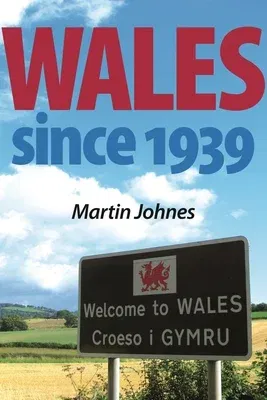This book is the first overview of Wales in the period from the Second
World War to the early years of devolution. Drawing upon in-depth
research, it offers an incisive account of an important phase in British
history from the perspective of a nation that is too often overlooked.
The period since 1939 saw more rapid and significant change than any
other time in Welsh history. Wales developed a more assertive identity
of its own and some of the apparatus of a nation state. Yet its economy
floundered between boom and bust, its traditional communities were
transformed and the Welsh language and other aspects of its
distinctiveness were undermined by a globalizing world. Wales was also
deeply divided by class, language, ethnicity, gender, religion and
region. Its people grew wealthier, healthier and more educated but they
were not always happier. This ground-breaking book examines the story of
Wales since 1939, giving voice to ordinary people and the variety of
experiences within the nation. This is a history of not just a nation,
but of its residents' hopes and fears, their struggles and pleasures and
their views of where they lived and the wider world.
A significant contribution to ideas on national identity and to public
debates on Welshness and Britishness in a devolved UK, Wales since 1939
embraces topics ranging from the Aberfan disaster, the miners' strikes
and the flooding of Tryweryn to the impacts of consumerism, rugby and
popular music. It will appeal to anyone interested in the recent history
of both Wales and Britain, and in British social and political history
more generally.

